
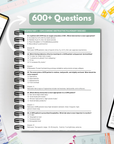
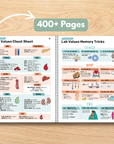
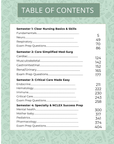
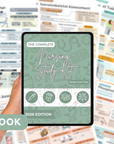
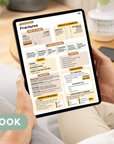
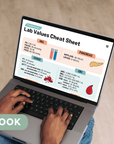
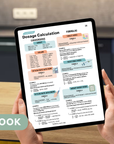

The Complete 4-Semester Study & Practice Kit (2026 Edition)
Powered by The No-Textbook System™

4.8/5 Excellent 50,000+ reviews
"Went from overstudying for 50s to reading once and actually practising for 80s.” — Maria L., (New Grad Nurse)
- Perfect fit for every program & semester (ADN, BSN, LPN)
- Split into 4 semesters — so you never guess what to focus on
- Notes & Questions per semester for students who need to ACE exams
IN STOCK - READY TO SHIP!
Choose Format
Choose FormatAdd On
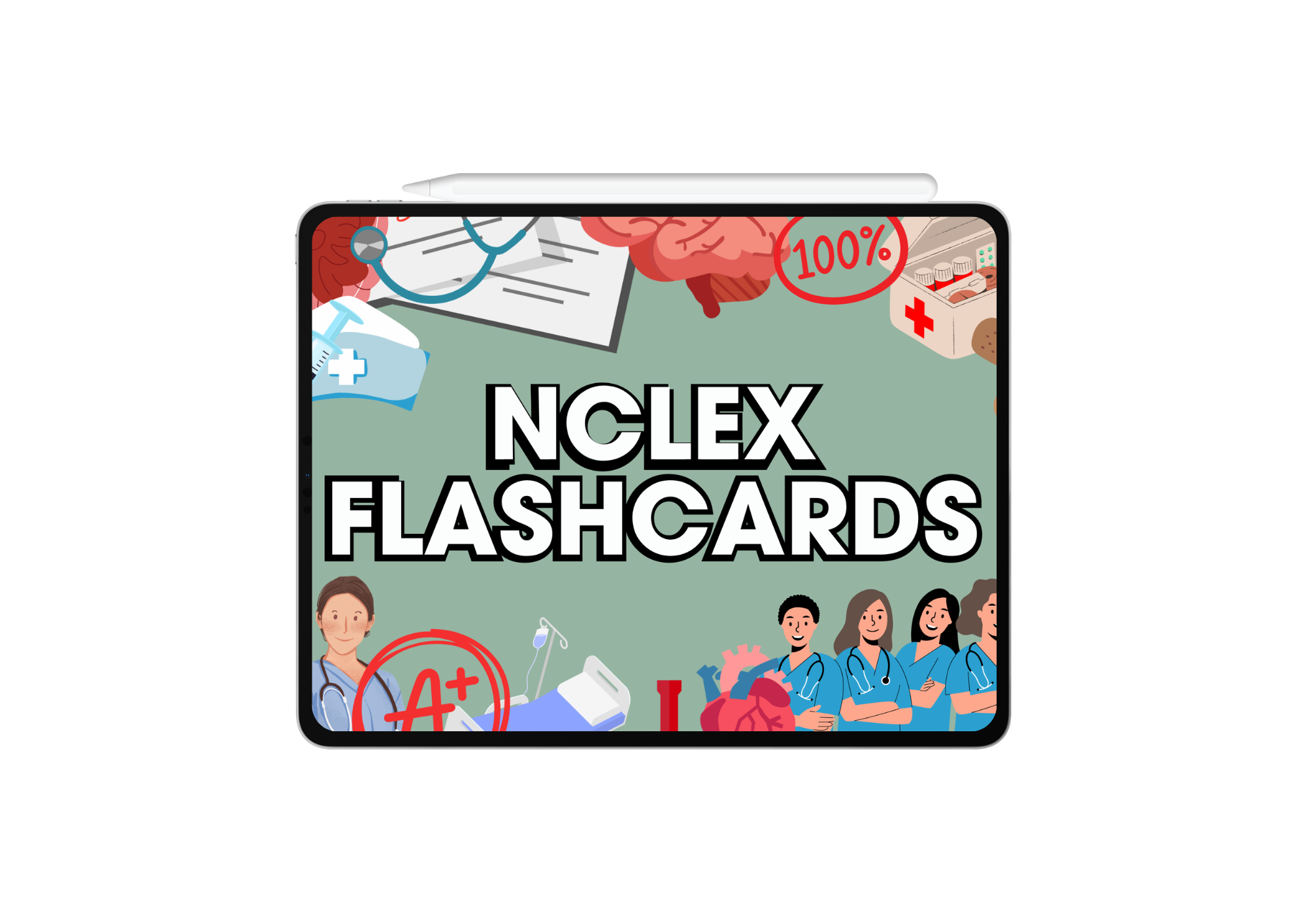
NCLEX Prep Flahscards
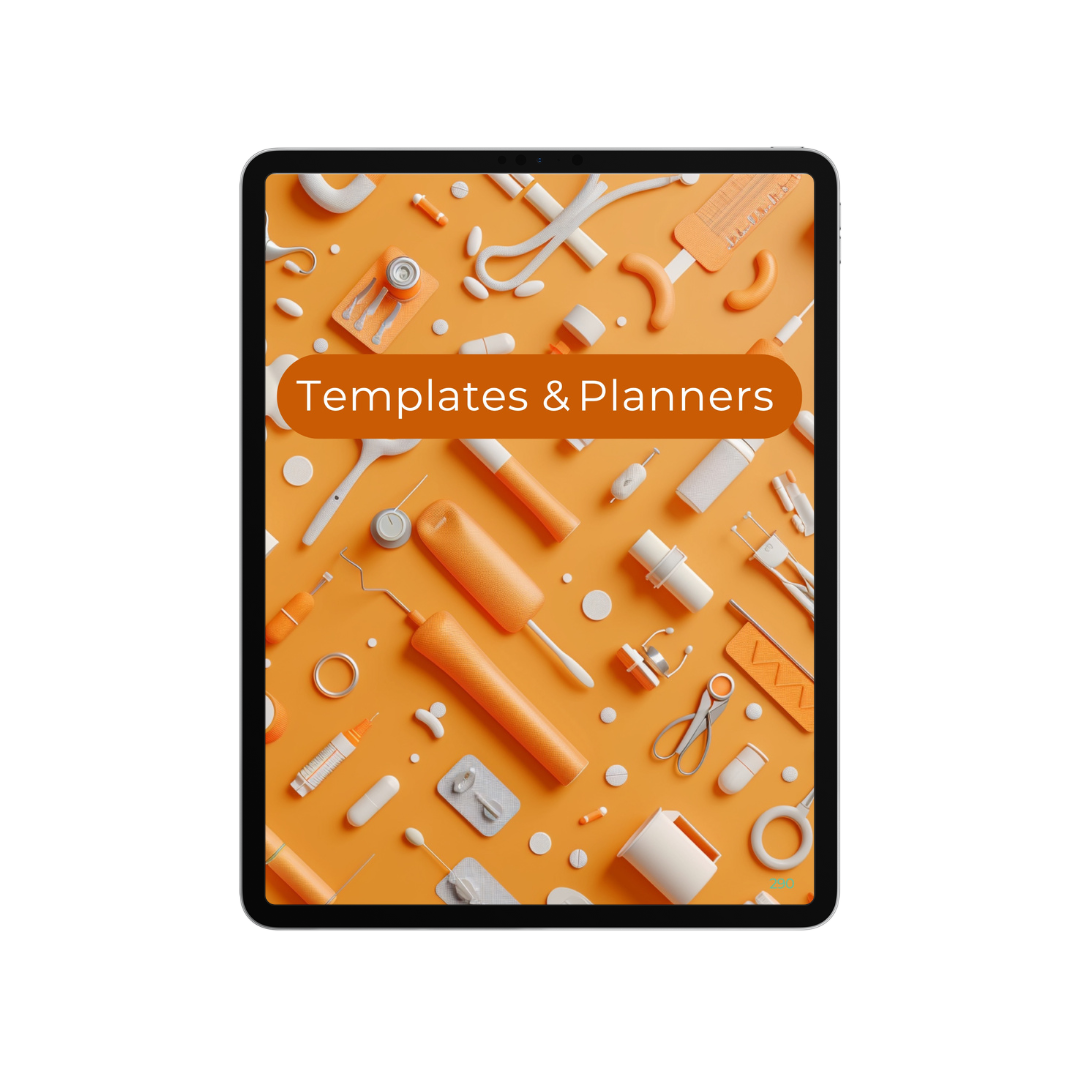
Templates & NCLEX Planners
Because YouTube, Textbooks, and Quizlets Aren't Working

95%
Study Efficiency
*95% of students saved over 5 hours of study time per week by using our organized complete nursing study kit.
92%
Confidence Boost
*92% of nursing students felt more confident and less stressed when preparing for finals with our comprehensive study guide.
88%
Improved Exam Performance
*88% of nursing students who used our study guide saw their exam scores increase by at least 40%.
Because YouTube, Textbooks, and Quizlets Aren't Working

The No-Textbook System™, Organized by Semester
Click on a tab to see how each semester’s notes + practice questions replace entire textbook chapters.
-
Fundamentals Fundamentals
Fundamentals
-
Neuro Neuro
Neuro
-
Respiratory Respiratory
Respiratory
-
Practice Questions (Semester 1) Practice Questions (Semester 1)
Practice Questions (Semester 1)
-
Cardiac Cardiac
Cardiac
-
Musculoskeletal Musculoskeletal
Musculoskeletal
-
Gastrointestinal Gastrointestinal
Gastrointestinal
-
Renal & Urinary Renal & Urinary
Renal & Urinary
-
Practice Questions (Semester 2) Practice Questions (Semester 2)
Practice Questions (Semester 2)
-
Endocrine Endocrine
Endocrine
-
Hematology Hematology
Hematology
-
Immune Immune
Immune
-
Practise Questions (Semester 3) Practise Questions (Semester 3)
Practise Questions (Semester 3)
-
Critical Care Critical Care
Critical Care
-
Mental Health Mental Health
Mental Health
-
Ob & Maternity Ob & Maternity
Ob & Maternity
-
Pediatrics Pediatrics
Pediatrics
-
Pharmacology Pharmacology
Pharmacology
-
Practise Questions (Semester 4) Practise Questions (Semester 4)
Practise Questions (Semester 4)
Subject:
 Fundamentals
Fundamentals
 Fundamentals
Fundamentals
 Neuro
Neuro
 Respiratory
Respiratory
 Practice Questions (Semester 1)
Practice Questions (Semester 1)
 Cardiac
Cardiac
 Musculoskeletal
Musculoskeletal
 Gastrointestinal
Gastrointestinal
 Renal & Urinary
Renal & Urinary
 Practice Questions (Semester 2)
Practice Questions (Semester 2)
 Endocrine
Endocrine
 Hematology
Hematology
 Immune
Immune
 Practise Questions (Semester 3)
Practise Questions (Semester 3)
 Critical Care
Critical Care
 Mental Health
Mental Health
 Ob & Maternity
Ob & Maternity
 Pediatrics
Pediatrics
 Pharmacology
Pharmacology
 Practise Questions (Semester 4)
Practise Questions (Semester 4)
Fundamentals (Semester 1)
Topics within this subject:
Pages 5-48
- Medical Terms & Abbreviations + Suffixes/ Prefixes + Banned Abbreviations
- Lab Values Cheat Sheet
- Dosage Calculation (Rules & Formulas)
- Medication Administration
- IV Line Management (Peripheral Lines & Central Lines)
- IV Therapy Complications
- Skin Overview (Functions, Types of Lesions, Edema, Skin color & tugor)
- Ambulation Devices (Scale Interpretation, Crutches, Walker, Cane)
- Oxygenation (Breathing Patterns, Lung Sounds, Hypoxia, Oxygen Delivery Devices)
- Pain Management (Types of Pain, Pain Management Methods)
& MORE
Neuro (Semester 1)
Topics within this subject:
Pages 49-69
- Nervous System Overview
- Neuro Assessment
- Cranial Nerves
- Amyotrophic Lateral Sclerosis (ALS)
- Alzheimer's Disease
- Delirium
- Cerebrovascular Accident (Stroke)
- Guillain-Barre Syndrome
- Encephalopathy
- Fibromyalgia
- Hydrocephalus
- Increased ICP
- Meningitis
- Multiple Sclerosis
- Myasthenia Gravis
- Parkinson's Disease
- Seizures
- Spinal Cord Injury
- Traumatic Brain Injury
- Ventricular Drains (EVD vs. VP Shunt)
Respiratory
Topics within this subject:
Pages 70-85
- Respiratory Overview
- Respiratory Assessment
- Arterial Blood Gas Basics (Memory trick + Interpreting ABG's)
- ABG's: Respiratory Acidosis vs. Respiratory Alkalosis
- ABG's: Metabolic Acidosis vs. Metabolic Alkalosis
- Acute Respiratory Distress Syndrome (ARDS)
- Asthma
- Chest Tubes
- Chronic Obstructive Pulmonary Disease (COPD)
- Pneumothorax vs. Hemothorax
- Pleural Effusion vs. Pulmonary Edema
- Pneumonia
- Pulmonary Embolism
- Tuberculosis
- Upper Respiratory Disorders
Exam Practise Questions (Semester 1)
Questions within this section:
Pages 86-122
Fundamentals
- Vital signs & normal ranges
- Lab value interpretation
- Dosage calculations (rules & formulas)
- Safety & infection control
- Medication administration basics
- Delegation & prioritization scenarios
Neuro
- Levels of consciousness
- Cranial nerve assessment
- Seizure precautions
- Increased ICP management
- Neuro check interpretation
Respiratory
- Oxygen devices & flow rates
- Breath sound identification
- ABG basics & interpretation
- Signs of respiratory distress
- Priority nursing interventions
Cardiac (Semester 2)
Topics within this subject:
Pages 124-141
- Cardiac System Overview (Chambers of the Heart, Layers of the Heart, Cardiac Output & Terms)
- Cardiac Functioning (Blood Flow through the Heart, Conduction System)
- Cardiac Assessment
- EKG Basics & Interpretation
- Cardiac Rhythms (Sinus Arrhythmias, SVT, Afib/ aflutter, Junctional Rhythms, PVC's vs PAC's, Vfib, Vtach, Asystole, Defibrillation vs Cardioversion, Heart Blocks)
- Coronary Artery Disease
- Angina Pectoris
- Myocardial Infarction
- Cardiac Tamponade
- Cardiomyopathy
- Infective Endocarditis
- Heart Failure
- Hypertension
- Peripheral Artery Disease vs Peripheral Vascular Disease (PAD vs. PVD)
Musculoskeletal (Semester 2)
Topics within this subject:
Pages 142-151
- Musculoskeletal System Overview
- Musculoskeletal Assessment
- Compartment Syndrome
- Degenerative Disc Disease
- Fractures
- Gout
- Osteoarthritis vs. Rheumatoid Arthritis (OA vs. RA)
- Osteomyelitis
- Osteoporosis
Gastrointestinal (Semester 2)
Topics within this subject:
Pages 152-164
- GI System Overview
- GI System Assessment
- Cholecystitis
- Pancreatitis
- Inflammatory Bowel Disease (Crohn's vs. Ulcerative Colitis)
- Diverticulitis vs. Diverticulosis
- GERD vs. Gastritis vs. Peptic Ulcer Disease (PUD)
- Gastrointestinal Bleed (Upper vs. Lower GI Bleed)
- Hepatitis
- Cirrhosis
- Acute Liver Failure
- Bowel Obstruction
Renal & Urinary (Semester 2)
Topics within this subject:
Pages 165-176
- Renal System Overview
- Urinary Assessment
- Acute Kidney Injury
- Chronic Kidney Disease
- Benign Prostatic Hyperplasia (BPH)
- Urinary Tract Infection (UTI)
- Glomerulonephritis
- Nephrotic Syndrome
- Renal Calculi
- Hemodialysis
- Peritoneal Dialysis
Exam Practise Questions (Semester 2)
Questions within this section:
Pages 177-209
Cardiac
• Heart rhythms & ECG basics
• Heart failure, MI, and hypertension management
• Cardiac medications & side effects
• Priority interventions for chest pain
• Fluid balance and perfusion scenarios
Musculoskeletal
• Fracture types & traction care
• Cast, brace, and mobility safety
• Compartment syndrome warning signs
• Range of motion & assistive device questions
• Osteoporosis and arthritis care plans
Gastrointestinal
• Upper vs lower GI bleeding
• NG tube management & suctioning
• Bowel obstruction vs perforation
• Liver & pancreatitis complications
• Diets and nutrition questions
Renal/Urinary
• UTI vs pyelonephritis
• Acute vs chronic kidney disease
• Catheter care & sterile technique
• Fluid overload vs dehydration
• Lab interpretation (BUN, creatinine)
Endocrine (Semester 3)
Topics within this subject:
Pages 211-221
- Endocrine System Overview
- Hormone Functions
- Addison’s vs. Cushing’s
- Diabetes Mellitus (Type 1 vs. Types 2 Diabetes)
- Hypoglycemia vs. Hyperglycemia
- Diabetic Ketoacidosis vs. Hyperglycemic Hyperosmolar Nonketotic Syndrome (DKA vs. HHNS)
- Hypoparathyroidism vs. Hyperparathyroidism
- Hypothyroidism vs. Hyperthyroidism
- Diabetes Insipidus vs. Syndrome of Inappropriate Antidiuretic Hormone (DI vs. SIADH)
- Pheochromocytoma
Hematology (Semester 3)
Topics within this subject:
Pages 222-229
- Hematology Overview
- Types of Anemia
- Sickle Cell Anemia
- Disseminated Intravascular Coagulation (DIC)
- Deep Vein Thrombosis (DVT)
- Hemophilia
- Thrombocytopenia
Immune (Semester 3)
Topics within this subject:
Pages 230-242
- Immune System Overview
- Cancer Overview
- Types of Cancer
- Cancer Treatments & Complications
- Leukemia
- Lymphoma
- Multiple Myeloma
- Polycythemia
- HIV/ AIDS
- Lyme’s Disease
- Psoriasis vs. Eczema
- Systemic Lupus Erythematosus
Exam Practise Questions (Semester 3)
Questions within this section:
Pages 258-298
Endocrine
• Diabetes (DKA vs HHS) priority care
• Thyroid disorders (hyper vs hypo)
• Adrenal crisis & Addison’s vs Cushing’s
• Insulin types, timing, and mixing rules
• Electrolyte imbalance & hormone feedback questions
Hematology
• Anemia types & transfusion reactions
• Clotting disorders (DIC, hemophilia)
• Lab interpretation (Hgb, Hct, Platelets)
• Neutropenia precautions
• Safe blood administration protocols
Immune
• HIV/AIDS nursing care & precautions
• Hypersensitivity & anaphylaxis priorities
• Autoimmune disorders (Lupus, RA)
• Infection prevention & immune meds
• Vaccine schedule basics
Critical Care
• Shock types (hypovolemic, cardiogenic, septic)
• ABG and ventilator management
• Chest tubes & drainage system questions
• Burns — priority care and fluid resuscitation
• Emergency triage & “who do you see first?”
Critical Care (Semester 3)
Topics within this subject:
Pages 243-257
- ACLS vs. BLS Cheat Sheet
- Arterial Lines
- Mechanical Ventilation Basics
- Continuous Renal Replacement Therapy (CRRT)
- Shock Overview
- Types of Shock: Hypovolemic vs. Cardiogenic vs. Obstructive
- Types of Shock: Anaphylactic vs. Septic vs. Neurogenic (Distributive Shocks)
- Sepsis
- Burns Overview
- Burn Care Phases & Fluid Resuscitation (Parkland Formula & Rule of 9’s)
- Trauma & Emergency Care
- Disaster Triage
- Drug Overdose & Poisoning
- Organ Donation
Mental Health (Semester 4)
Topics within this subject:
Pages 300-316
- Mental Health Overview
- Mental State Examination
- Types of Therapy
- Attention Defecit Hyperactivity Disorder (ADHD)
- Aggression & Abuse
- Anxiety
- Autism Spectrum Disorder
- Bipolar Disorder
- Depression
- Eating Disorders
- Obsessive Compulsive Disorder (OCD)
- Personality Disorders
- Post Traumatic Stress Disorder (PTSD)
- Schizophrenia
- Somatoform Disorders
- Substance Abuse Disorders
Ob & Maternity (Semester 4)
Topics within this subject:
Pages 317-340
- GTPAL & Maternity Terms
- Contraception Methods & Infertility
- Signs of Pregnancy & Naegele’s Rule
- Trimesters & Fetal Development
- Pregnancy Physiology
- Rh Incompatibility
- Placenta Previa
- Placental Abruption
- Ectopic Pregnancy
- Molar Pregnancy (Hydatidiform Mole)
- Spontaneous Abortion
- Infection Pregnancy Complications (HIV, STD’s, Group B Strep, TORCH Infections)
- Medical Pregnancy Complications (Hyperemesis Gravidarum, Gestational Diabetes, Gestational Hypertension & HELLP Syndrome)
- Stages of Labor
- True vs. False Labor
- 5 P’s of Labor
- Fetal Positioning & Station
- Fetal Heart Tones
- Labor Complications (Cord Prolapse, Dystocia, Meconium Stained Amniotic Fluid, Premature Rupture of Membranes, Precipitous Labor)
- Newborn Assessment
- Postpartuum Assessment
- Postpartum Hemorrhage
- Newborn Care
Pediatrics (Semester 4)
Topics within this subject:
Pages 341-373
- Pediatric CPR Cheat Sheet
- Pediatric Milestone (Infant & Toddler to Preschooler)
- Erikson’s Theory
- Piaget’s Stages of Development
- Pediatric Vaccine Schedule
- Pediatric Vital Signs
- Communicable Diseases
- Spina Bifida
- Bronchiolitis
- Croup
- Epiglottitis
- Otitis Media
- Cystic Fibrosis
- Kawasaki Disease
- Reye’s Syndrome
- Scarlet Fever
- Sudden Infant Death Syndrome (SIDS)
- Febrile Seizures
- Cerebral Palsy
- Phenylketonuria (PKU)
- Muscular Dystrophy (Becker vs. Duchenne)
- Developmental Hip Dysplasia
- Congenital Heart Defects (Tetrology of Fallot, Tricupid Atresia, ASD, VSD, PDA, Aortic Stenosis, Pulmonary Stenosis, Coarction of Aorta, Hypoplastic Left Heart Syndrome, Transposition of Great Arteries, Truncus Arteriosis)
- Cleft Lip & Palate
- Hypertrophic Pyloric Stenosis
- Intussusception
- Hirschsprung Disease (Congenital Aganglionic Megacolon)
Pharmacology (Semester 4)
Topics within this subject:
Pages 374-403
- Prefixes & Suffixes
- Therapeutic Levels & Antidotes
- Emergency Meds
- Anticonvulsants
- Anticholinergic vs. Cholinergics
- Bronchodilators (Beta-2 Agonists, Anticholinergics, Methylxanthines)
- Respiratory Anti-inflammatory Agents (Steroids, Leukotriene Modifers, Mast Cell Stabilizers)
- Secretion & Allergy Management (Expectorants, Mucolytics, Decongestants, Antihistamines)
- Cardiac Pharm Overview (Adrenergic Receptors & Cardiac Output)
- Adrenergic Blockers (Alpha Blockers & Beta Blockers)
- RAAS Inhibitors (ACE Inhibitors & ARBs)
- Cardiotonic Agents (Digoxin, Milrinone, Dobutamine, Dopamine)
- Vasodilators (Calcium Channel Blockers, Nitrates, Hydralazine)
- Antihyperlipidemics (Statins, Bile Acid Resins, Fibrates)
- Diuretics (Loop, Thiazide, Potassium Sparing, Osmotic)
- Anticoagulants (Heprain, Warfarin, Direct Oral Anticoagulants)
- Vasopressors (Norepinephrine, Phenylephrine, Epinephrine, Vasopressin)
- Acid Suppressing Agents (Antacids, H2 Blockers, Proton Pump Inhibitors, Mucosal Protectant aka Sucralfate)
- Antibiotics (Penicillins, Cephalosporins, Glycopeptides, Macrolides, Aminoglycosides, Tetracyclines, Lincosamides, Sulfonamides, Fluoroquinolones, Antiprotozoals, Nitrofurans)
- Immunosuppressants
- Non-opioid Analgesics
- Opioid Analgesics
- Mood Stabilizers
- Antidepressants (SSRI’s, SNRI’s, MAOI’s, TCA’s)
- Anxiolytics ( Benzodiazepines, Barbiturates, Buspirone)
- Antipsychotics (Typicals vs Atypicals)
- Types of Insulin
Exam Practise Questions (Semester 4)
Questions within this section:
Pages 404-412
Mental Health
• Therapeutic communication (what not to say)
• Defense mechanisms & coping styles
• Priority safety for suicidal or psychotic patients
• Medication side effects (antipsychotics, SSRIs)
• Crisis intervention & de-escalation
Mother Baby (OB)
• Labor stages & fetal monitoring strips
• Postpartum complications (bleeding, infection)
• Newborn assessment & Apgar scoring
• Preeclampsia vs eclampsia priorities
• Pregnancy meds & contraindications
Pediatrics
• Growth & development milestones
• Vaccine schedules & pediatric safety
• Common childhood diseases (RSV, asthma)
• Dehydration & fluid calculation questions
• Pediatric med dosing & pain scales
Pharmacology
• Drug classes & memory tricks
• Side effects you must know for exams
• High-alert medications (insulin, heparin, digoxin)
• Common med interactions
• NCLEX-style med calc & safety scenarios
Only Study What Your Teachers Actually Tests
We built The No-Textbook System™ so you’re not wasting hours rereading chapters teachers never test. Each semester combines the exact notes and practice questions that match real exam patterns — so you study what matters, remember it faster, and walk into every test confident instead of burnt out.
-
1. Learn only what's tested
-
2. Practice per semester
-
3. Ace every single test
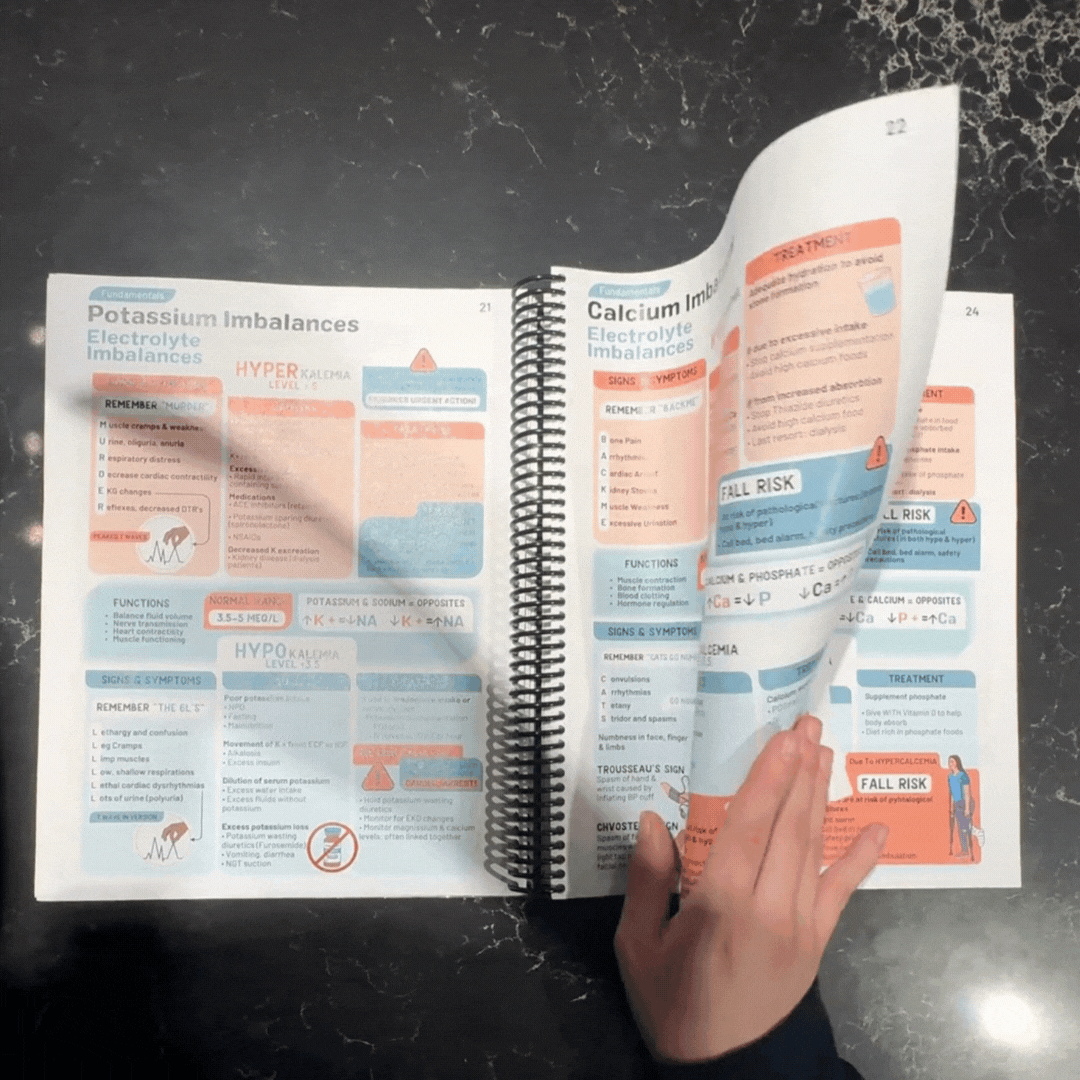
Become the Student Who Gets It Instantly
Discover the guide built to help you actually get it — faster. Learn nursing concepts in a way that finally clicks, stop the late-night stress, and feel confident walking into every exam knowing you truly understand it.
-
Study what matters — not everything
-
Practice with the same kind of questions
-
Stop overstudying sessions
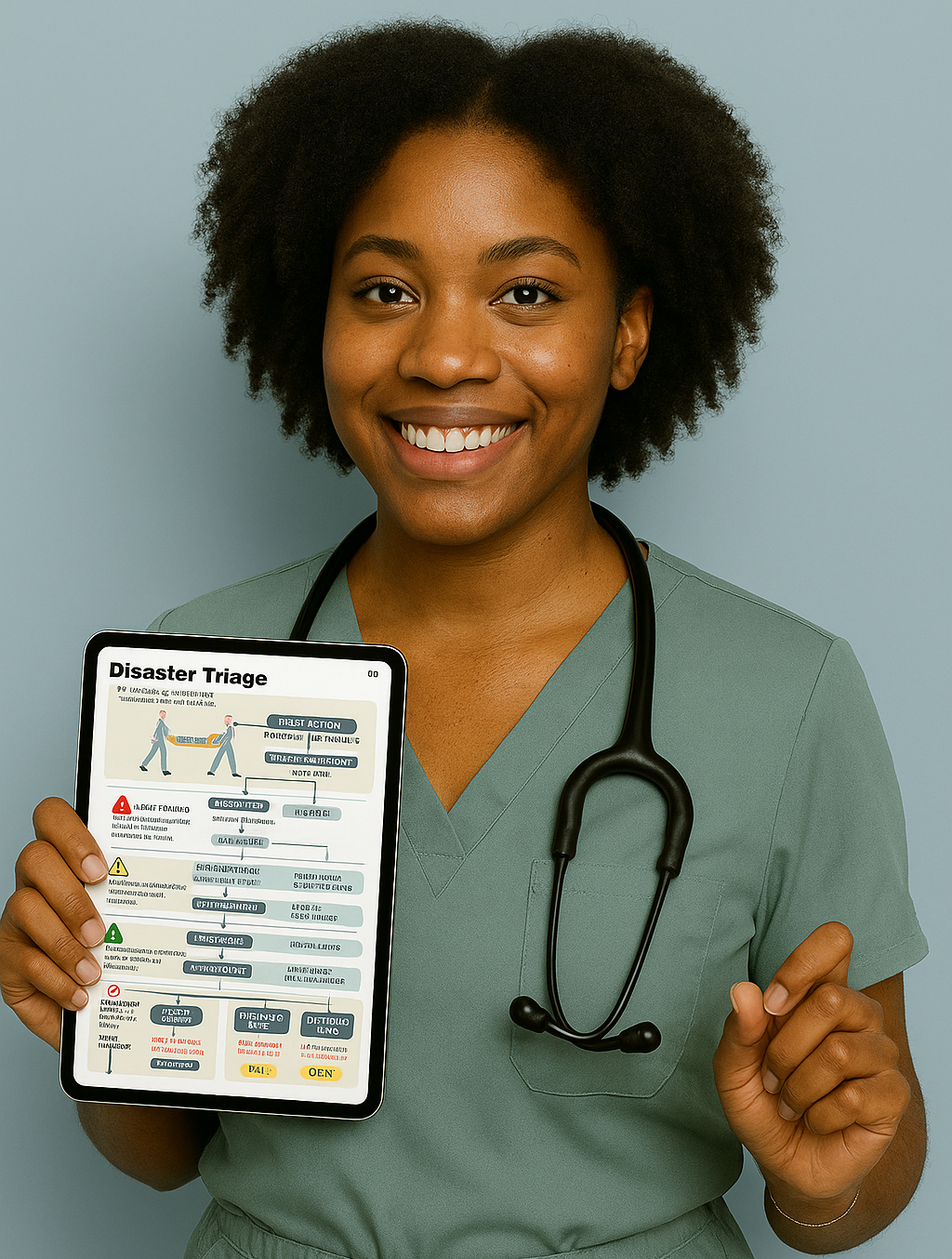
Not Tired of Studying All Night for Mid Grades?
You don’t need to pull another all-nighter just to score average again. This guide breaks down what actually matters. It covers 15 essential topics like pharmacology, pediatrics, OB, mental health, and critical care, all designed to help you excel in your finals and clinicals. With clear, concise notes that simplify complex concepts, you’ll save time and boost your confidence.
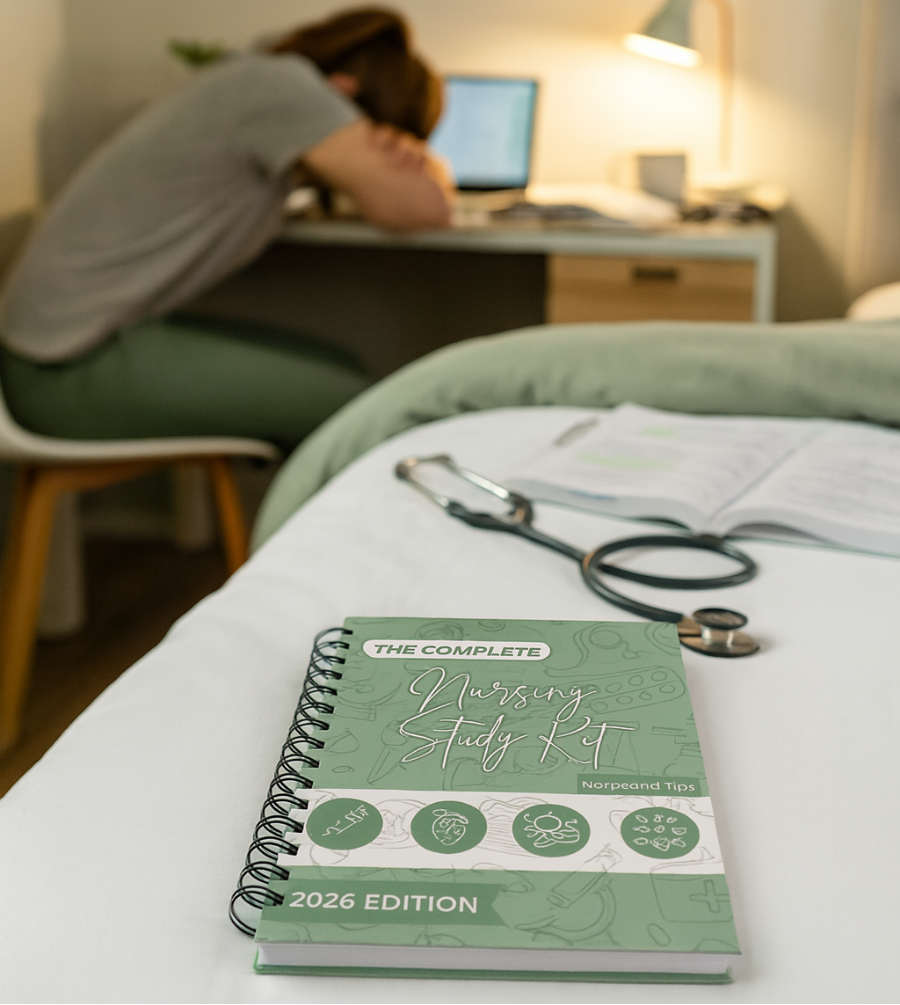
60-Day Satisfaction Guarantee
Trust in Our Commitment to Your Satisfaction with 60 Days of No-Questions-Asked Returns.
From curious to confident
- Yes! Spiral Bound and eBook format give you maximum flexibility - add notes on your iPad and computer or highlighting directly on the Spiral Bound. Perfect for both digital and visual learners.
Elevate your nursing expertise with complete coverage of 15 essential areas:
✓ Fundamentals
✓ Neurology
✓ Respiratory
✓ Cardiac
✓ Musculoskeletal
✓ Gastrointestinal
✓ Renal & Urinary
✓ Endocrine
✓ Hematology
✓ Immune
✓ Critical Care
✓ Mental Health
✓ Ob & Maternity
✓ Pediatrics
✓ Pharmacology
- Yes! Our notes cover all Med-Surg content from semesters 1-4, plus essential nursing theories. Perfect for all nursing paths - CNA, LPN/LVN, RN, and NP students. The material adapts to your level, supporting both beginners and advanced learners.
- Yes, the eBook can be downloaded for offline access, allowing you to study anytime, anywhere.
- At the moment, The Complete Nursing Study Kit is available in English only.
















